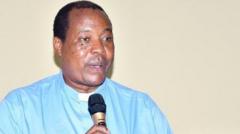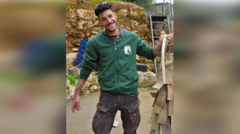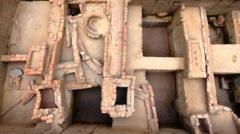Renowned Tanzanian priest and vocal government critic, Father Charles Kitima, was brutally attacked near his home, highlighting escalating political tensions as elections approach. Eyewitness accounts and police investigations are underway as civil society rallies against the attack.
Tanzanian Priest and Activist Attacked Ahead of Elections

Tanzanian Priest and Activist Attacked Ahead of Elections
The violent assault on Father Charles Kitima raises concerns about political tensions and safety for critics of the government.
A prominent Tanzanian Catholic priest, Father Charles Kitima, known for his outspoken criticism of the government, has been violently attacked, exacerbating fears of political instability ahead of the upcoming elections. The incident occurred after a religious meeting when Father Kitima was ambushed by two assailants in a restroom close to his residence in Dar es Salaam. Initial reports indicate he sustained severe head injuries from a blunt object and was subsequently hospitalized, where his condition has stabilized.
Witnesses reported seeing Father Kitima conversing with several individuals before the attack, only to later find him bleeding and calling for assistance. Local authorities confirmed that one suspect has been taken into custody, while investigations are ongoing to uncover further details regarding the assailants. His brutal attack, which has sparked widespread condemnation, was labeled a serious threat to his life by Boniface Mwabukusi, the president of the Tanganyika Law Society, who visited him in the hospital.
Father Kitima serves as the secretary-general of the Tanzania Episcopal Conference (TEC) and has consistently advocated for democratic reforms and human rights. His assault is alarming for many, coming in a climate where political tensions are high and civic freedoms appear to be waning, as noted by various rights organizations. Several political figures and civil society leaders have condemned the attack, calling it reflective of a broader issue of violence towards critics of the ruling power.
Political discourse in Tanzania is intensifying ahead of the elections, with notable figures, including those from the opposition, voicing concerns about safety and freedom of expression. The Catholic Church, which represents a significant portion of the Tanzanian population, has been increasingly vocal in calling for government accountability and electoral reform.
The motive behind the attack on Father Kitima remains unclear, with police emphasizing their commitment to a thorough investigation. This incident highlights the precarious situation for those opposing government narratives and raises concern within the community about potential ramifications for activists and religious leaders alike.




















